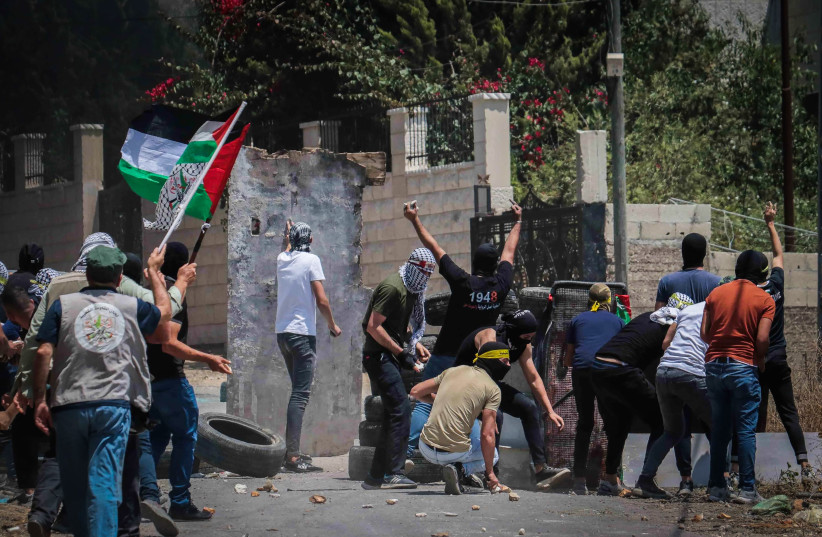Defense Minister Yoav Gallant on Wednesday placed four Jews in administrative detention relating to the recent revenge attacks and riots by West Bank Jewish residents against Palestinian villages.
A senior defense source noted that the four had all been involved in multiple violent incidents over many years, some public and some covert.
Each of the four already had restraining orders on where they were allowed to travel, said the source, implying they had violated the terms of these orders and noting that they had all continued to harm Palestinian property over the last week.
Further, the source said that their attacks led to burning cars and endangering the lives of innocent Palestinians.Crucially, some of the four previously undertook violent actions against the IDF and other Israeli security forces.
The Jerusalem Post has also learned that Gallant’s action was taken upon recommendation by the Shin Bet (Israel Security Agency) which flagged the significant danger posed by the four.
 Palestinian demonstrators clash with Israeli security forces during a protest in the village of Kfar Qaddum, in the West Bank, June 23, 2023 (credit: NASSER ISHTAYEH/FLASH90)
Palestinian demonstrators clash with Israeli security forces during a protest in the village of Kfar Qaddum, in the West Bank, June 23, 2023 (credit: NASSER ISHTAYEH/FLASH90)Preventing an escalation in violence in the West Bank
Further, Gallant has made it clear that he will do whatever needs to be done to prevent revenge attacks and riots by Jews.
The defense minister is insistent that Israel will act better than its enemies and will not provide its enemies with any possible valid excuse for violence against Israel as revenge for revenge, something he has also told Prime Minister Benjamin Netanyahu.
Gallant’s action comes shortly after US Secretary of State Anthony Blinken pushed Israel to do more to contain Jewish revenge attacks, which have increased in recent weeks in tandem with an increase in Palestinian terror attacks on Jews In the West Bank.Over 1,000 Palestinians are currently in administrative detention, but years can go by sometimes with no Jews in administrative detention.
Here and there in recent years, one or two Jews were briefly held in administrative detention, but the last time this many Jews were held was after the 2015 arson murders of the Palestinian Dawabshe family in Duma.
Administrative detention does provide for judicial oversight and tends not to last beyond three to six months, but does not grant detainees all of the rights granted to a defendant in a criminal proceeding.
Secret evidence is sometimes shown only to the court and not to the defense lawyer to avoid leaking intelligence sources and methods. Sometimes there may be intelligence about a detainee’s actions, but that may be considered insufficient under general criminal law standards.
This has exposed Israel to global criticism for using administrative detention against Palestinians, and some right-wing groups loudly protest on the rare occasions when it is used against their activists.
Meanwhile, IDF chief-of-staff Lt. Gen. Herzi Halevi on Wednesday echoed Gallant’s tough talk against Jewish revenge attacks during a speech to the officers graduation course.
Halevi said, “An officer who sees an Israeli citizen who intends to throw a molotov cocktail at a Palestinian house and does not stop him, cannot continue to be an officer. This is our way, this is our power in comparison to this complex region where we live, and we cannot fiddle around with this.”
The IDF chief was clearly instructing officers that they must actively prevent harm to Palestinians by Jewish revenge attacks in order to maintain Israel’s commitment to human rights and to remain above some other cultures in the Middle East which do not respect such rights.